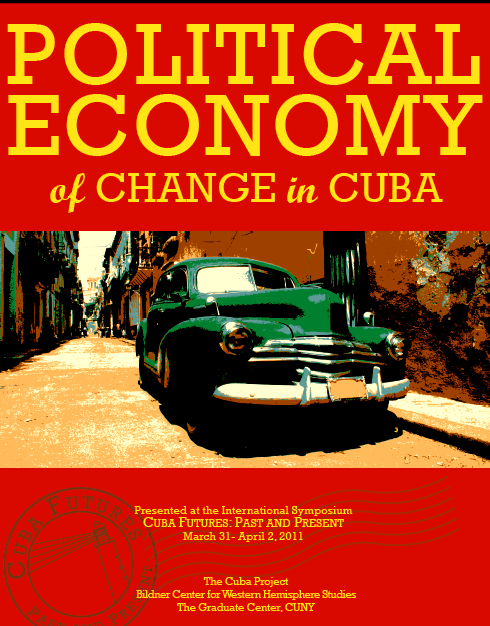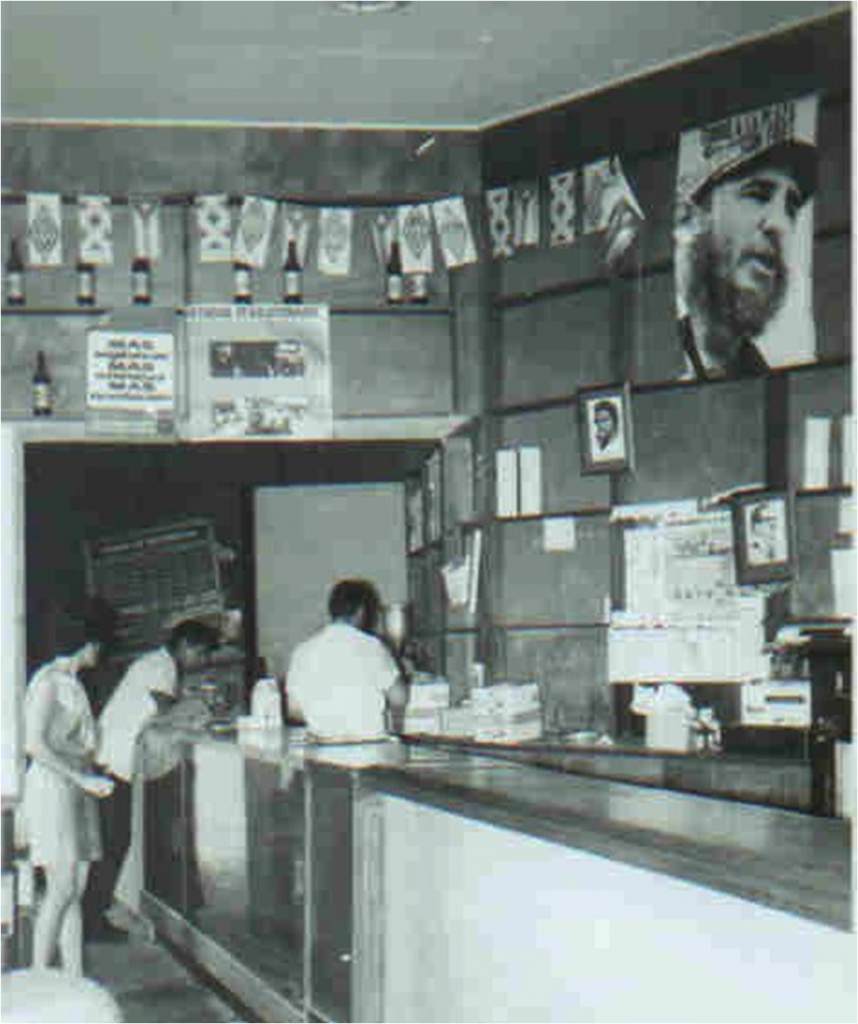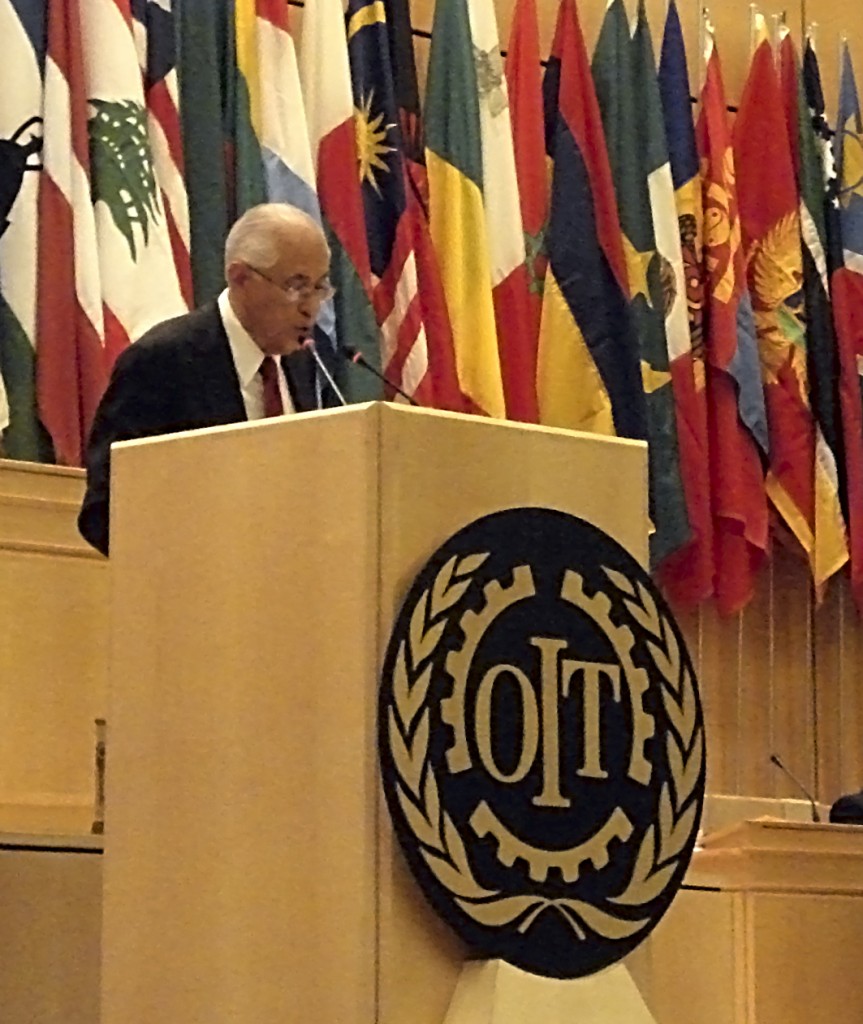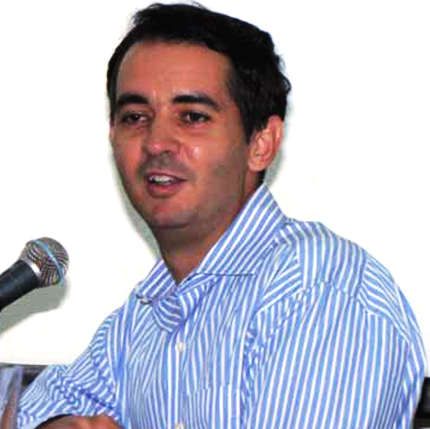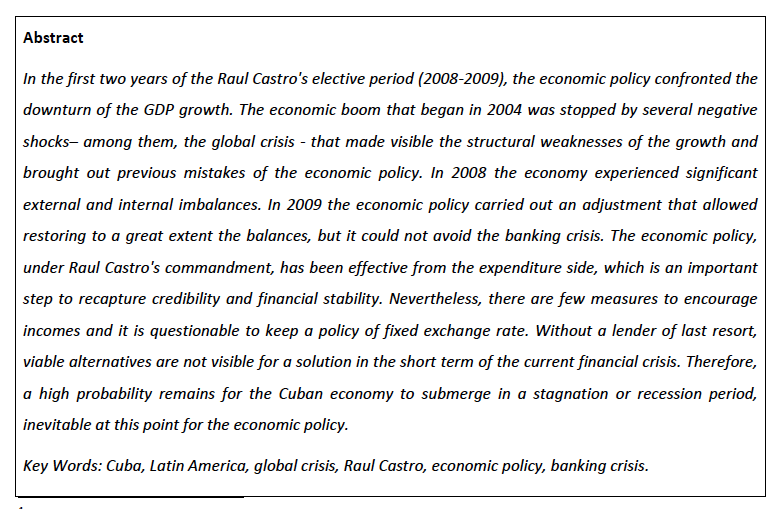An essay entitled “Entre el ajuste fiscal y los cambios estructurales: se extiende el cuentapropismo en Cuba”
by Pavel Vidal Alejandro y Omar Everleny Pérez Villanueva of the Centro de Estudios sobre la Economia Cubana has just been published in the Digital Supplement of Espacio Laical, the CONSEJO ARQUIDIOCESANO DE LAICOS DE LA HABANA, Suplemento Digital No.112 / Octubre 2010.
Here is the web address for the article:
( “Entre el ajuste fiscal y los cambios estructurales: se extiende el cuentapropismo en Cuba” . )
The web address for Espacio Laical is
Espacio Laical: http://espaciolaical.org. (Then if necessary go to the October 2010 edition first page.)
This essay is well worth reading, outlining the general economic situation in Cuba provoking the September 2010 liberalization of the restrictions on self-employment, summarize the regulatory changes, and present a number of comments on the policy changes, summarized below in Spanish:
1. Una gran parte de la población y especialistas coincide que la lista publicada en Granma de 178 actividades es aún demasiado precaria
y reducida para poder asimilar el medio millón de desempleados estatales. Son necesarias nuevas categorías y agilizar la creación de
las cooperativas no agrícolas.
2. Las categorías son demasiado específicas y ello frena la iniciativa individual. Sería preferible una lista de categorías generales que le
dieran espacio a los cuentapropistas y microempresarios para proponer y perfilar una oferta de bienes y servicios diversa. Esta tiene queser lo suficientemente flexible como para poder adecuarse a una demanda cambiante en el tiempo y heterogénea en lo local, y que es indescifrable para cualquiera que se lo proponga centralmente.
3. Las actividades permitidas son poco intensivas en conocimiento y no permiten aprovechar la inversión en educación que ha hecho el
país por décadas. Muchos de los desempleados estatales serán graduados universitarios que necesitarán una opción acorde con su
calificación.
4. Se permite el crédito bancario, pero el sistema financiero tiene problemas de liquidez, y habría que ver cuánto del ahorro todavía está comprometido en los créditos que se dieron para la sustitución de equipos electrodomésticos dentro de la llamada Revolución
Energética. Como alternativa, se requiere agilizar y promover la colaboración internacional en el tema del microcrédito.
5. No se va a crear un mercado mayorista de insumos para las PYME´s. Hoy los mercados de insumos para las empresas estatales sufren de desabastecimiento como consecuencia de los problemas económicos y financieros del país. Por tanto, es muy difícil pensar por ahora en un apoyo estatal en este aspecto. Pero si se promueve el microcrédito con colaboración internacional, ello significaría una entrada de divisas al país que posibilitarían abrir la importación para los cuentapropistas, microempresarios y cooperativistas. En Cuba operan suficientes proveedores extranjeros que podrían abastecer un mercado de insumos para las PYME´s. Los mismos mercados mayoristas que hoy existen para las empresas estatales podrían darle entrada a las PYME´s. La doble moneda no es un problema para las PYME´s pues tiene abierta la convertibilidad del peso cubano y el peso convertible en las casas de cambio (CADECA).
6. La medida considera pocos incentivos a la legalidad. Algunas actividades, por su naturaleza, son más visibles y tendrán por obligación ue legalizarse y pagar impuestos. Pero hay otras que tienen como único incentivo la incorporación a la Seguridad Social.
Evidentemente, para los que ya reciben una jubilación, este no tiene ningún efecto. El microcrédito y el mercado de insumos, precisamente serían incentivos a la legalidad, pues se necesitaría estar registrado y pagar impuestos para acceder a ellos. Las PYME´s internacionalmente son apoyadas tributaria e institucionalmente. La asesoría legal, económica, informativa y otras ayudas promoverían la legalidad y el desarrollo de las mismas.
7. Falta acompañar estos cambios con leyes que creen confianza para la inversión de esfuerzos y dinero en emprendimientos privados, y que garanticen, tanto al Estado como a los ciudadanos, el cumplimiento de derechos y deberes.
8. El estancamiento económico que vive el país es otro de los obstáculos para la creación de nuevas PYME´s. La oferta de bienes y servicios de los cuentapropistas, las microempresas y las cooperativas necesita de una demanda. Con estancamiento económico y aumento del desempleo es muy difícil pensar en una demanda suficiente desde las familias o desde las empresas estatales. Una gran parte de la demanda ya hoy está cubierta con una oferta desde la ilegalidad


Omar Everleny Perez and Pavel Vidal

